Djibouti
Discover Djibouti
Djibouti is a small country located in the Horn of Africa, bordered by Eritrea, Ethiopia, and Somalia. It has a diverse culture influenced by its position at the crossroads of several civilizations. The official languages are French and Arabic, and the predominant religion is Islam. Djibouti is known for its vibrant music and dance traditions, with dances like the “dankan” and “soumaar” reflecting the local culture.

The cuisine of Djibouti is a delicious blend of Somali, Afar, and French influences, with dishes like “skoudehkaris” (rice with meat), “lahoh” (spongy bread), and “xalwo” (sweet confection) being popular among the locals. The country also boasts stunning natural landscapes, from the otherworldly landscapes of Lac Assal, the lowest point in Africa, to the crystalline waters of the Gulf of Tadjoura.
Currency of Djibouti
Official Currency: The official currency of Djibouti is the Djiboutian Franc (DJF). It is abbreviated as Fdj and is further subdivided into smaller units called centimes.
Exchange Rate: The exchange rate of the Djiboutian Franc to the US Dollar is approximately 1 USD = 177.72 DJF. Travelers are advised to check for the latest exchange rates before converting their currency.
Availability of Currency: While US dollars are widely accepted in Djibouti, it is recommended to exchange some currency upon arrival, as not all businesses may accept foreign currency.
Economy of Djibouti
Growth and Development: Djibouti’s economy has experienced significant growth and development in recent years, driven primarily by the country’s strategic location and port facilities. The government has invested in infrastructure, including the construction of ports and free trade zones, attracting foreign investment and stimulating economic activity.
Main Industries: The key industries in Djibouti include logistics, trade, and transportation. The country’s ports serve as important gateways for goods entering and leaving the region, contributing to Djibouti’s status as a critical hub for global trade.
Challenges and Opportunities: Despite its progress, Djibouti faces challenges related to limited access to freshwater and high unemployment rates. The government is working to address these issues while seeking to diversify the economy and capitalize on opportunities in sectors such as tourism and renewable energy.
Culture of Djibouti
Traditional Attire: The traditional attire in Djibouti consists of colorful garments adorned with intricate embroidery and often includes a headscarf for women and a sarong-like garment for men.
Music and Dance: Djibouti’s culture is rich in traditional music and dance, with styles such as the “dhaanto,” a lively dance performed at weddings and celebrations, and the “danse du sabre,” a ceremonial dance involving the use of swords.
Cuisine: The cuisine of Djibouti is influenced by Somali, Afar, and French culinary traditions, featuring dishes such as “skoudehkaris,” a flavorful rice and meat dish, and “lahooh,” a spongy pancake served with honey or ghee.
Traditional Dances in Djibouti
African Rhythms and Movements
Traditional dances in Djibouti are deeply rooted in the country’s rich cultural heritage. These vibrant dances are characterized by rhythmic movements, colorful traditional attire, and energetic performances. The women often wear beautifully adorned dresses, and their graceful movements symbolize various aspects of daily life, community celebrations, and historical events.

Celebratory Expressions
Djiboutian traditional dances are often performed during social gatherings, weddings, and other festive occasions. The male dancers showcase their agility and strength through dynamic movements that reflect the collective joy and unity of the community. The traditional dance forms are an essential part of Djibouti’s identity and are passed down through generations as a way to preserve and celebrate the country’s cultural heritage.
Cultural Identity and Unity
These traditional dances serve as a means of cultural expression and solidarity, bringing together communities and reinforcing the collective spirit of the Djiboutian people. The performances often include a mix of storytelling, music, and dance, creating a captivating and immersive experience that reflects the unique traditions and values of the country.
Famous Foods in Djibouti
Dyskhet
Dyskhet is a traditional Djiboutian dish made from sorghum, sautéed onions, and clarified butter. It is often served with a spicy meat stew or a vegetable sauce, creating a rich and flavorful meal that is loved by locals and visitors alike.
Gabli
Gabli is a fragrant rice dish infused with a blend of aromatic spices, meat, and vegetables. It is a staple in Djiboutian cuisine and is known for its complex flavors and satisfying texture. The dish is often enjoyed during festive occasions and family gatherings.
Lahoh
Lahoh is a spongy, pancake-like bread that is a beloved part of Djiboutian cuisine. Made from a fermented batter of flour, water, and yeast, lahoh is often accompanied by honey, ghee, or sauces. It is a versatile dish, enjoyed as a breakfast item or as an accompaniment to stews and curries.
Flag of Djibouti
Meaning and Symbolism
The national flag of Djibouti features two equal horizontal bands of light blue (top) and light green with a white isosceles triangle based on the hoist side bearing a red five-pointed star in the center. The light blue represents the sea and sky, the light green symbolizes hope and the earth, whereas the white triangle stands for peace. The red star represents unity, as well as the struggles for independence and freedom.

The flag was adopted on June 27, 1977, following the country’s independence from France. It serves as a powerful symbol of national identity and pride for the people of Djibouti.
Map of Djibouti
Djibouti, located in the Horn of Africa, is a small country with a rich history and unique geography. The map of Djibouti showcases its strategic location at the junction of the Red Sea and the Gulf of Aden, making it a crucial maritime and trade hub. The country shares its borders with Eritrea, Ethiopia, and Somalia, and its capital city, Djibouti City, is a key port and commercial center.

The map also highlights the stunning landscapes within Djibouti, including Lake Assal, the world’s third- lowest point and one of the most saline bodies of water on earth. The map illustrates the diverse terrain, with rugged mountains, arid deserts, and picturesque coastlines, offering a glimpse into the natural beauty of this fascinating country.
Celebrities from Djibouti
Action Movie Star
Djibouti is proud to have produced a talented and versatile actor who has gained international recognition for their roles in action movies and dramas. Their captivating performances have earned them a dedicated fan base and critical acclaim.
Fashion Icon
A top model hailing from Djibouti has made a significant impact in the fashion industry, gracing the covers of renowned magazines and walking the most prestigious runways around the world. Their unique style and elegance have inspired numerous fashion enthusiasts.
Music Sensation
An influential musician from Djibouti has made waves in the global music scene, captivating audiences with their soulful melodies and powerful lyrics. Their music reflects the rich cultural heritage of Djibouti and resonates with diverse audiences.
Sports Champion
A celebrated athlete from Djibouti has achieved remarkable success in their respective sport, proudly representing their country in international competitions and earning accolades for their exceptional talent and dedication to athletic excellence.
Best Cities to Visit in Djibouti
- Djibouti City: As the capital and largest city in Djibouti, Djibouti City offers a blend of modern urban life and historical charm. Visitors can explore the bustling markets, vibrant nightlife, and the iconic Hamoudi Mosque.
- Tadjoura: Known for its beautiful beaches and traditional architecture, Tadjoura is a picturesque coastal city with a rich cultural heritage. The ancient whitewashed buildings and the tranquil atmosphere make it a must-visit destination.
- Obock: Situated on the Gulf of Aden, Obock is a gateway to some of Djibouti’s most stunning natural attractions. Visitors can enjoy fishing, snorkeling, and witness the breathtaking sunsets over the Gulf.
Places to Travel in Djibouti
- Lake Assal: Visit the lowest point in Africa and admire the breathtaking salt lake, known for its stunning white shores and crystal-clear turquoise waters.
- Lac Abbe: Explore the otherworldly landscape of Lac Abbe, characterized by limestone chimneys, hot springs, and opportunities to spot flamingos and other wildlife.
- Arta Beach: Relax on the golden sands of Arta Beach, where you can enjoy swimming, snorkeling, and picnicking amidst a serene coastal setting.
- Tadjourah: Immerse yourself in the rich history and culture of Tadjourah, a charming town with ancient architecture, vibrant markets, and friendly locals.
Djibouti’s History
Djibouti has a rich and diverse history that dates back to ancient times. It is situated at the crossroads of the Red Sea and the Indian Ocean, making it a strategic location for trade and commerce throughout history.
Throughout the centuries, Djibouti has been influenced by various cultures and civilizations, including the Ottoman Empire, the French, and Arab traders. This has contributed to the unique blend of traditions and customs that is present in Djibouti’s modern society.
The country gained independence from France in 1977, marking a significant milestone in its history. Since then, Djibouti has developed as an important player in the East African region, with a focus on economic growth and infrastructure development.
Today, Djibouti continues to honor and preserve its rich historical heritage through various cultural events, museums, and historical sites, offering visitors an opportunity to explore its captivating past.
Languages spoken in Djibouti
Official Language: The official languages of Djibouti are French and Arabic. French serves as the primary administrative language, while Arabic is widely used in cultural and business interactions.
Indigenous Languages: Apart from French and Arabic, several indigenous languages are spoken in Djibouti. Afar and Somali are the most prominent indigenous languages, reflecting the diverse cultural heritage of the country.
Language Diversity: The linguistic diversity in Djibouti contributes to the rich tapestry of its cultural identity. This diversity is evident in daily interactions, traditional expressions, and artistic performances.
Religion in Djibouti
- Islam: The predominant religion in Djibouti is Islam. The majority of the population adheres to Sunni Islam, with a small minority following Shia Islam. Mosques can be found throughout the country, and Islamic traditions and celebrations play a significant role in daily life.
- Christianity: While Islam is the dominant religion, there is also a Christian minority in Djibouti. TheOrthodox Christian community is the largest Christian denomination in the country, with a number of churches in the capital city and other regions.
- Other Religions: In addition to Islam and Christianity, Djibouti is also home to small communities practicing other religions such as Judaism and Hinduism. These communities contribute to the religious diversity of the country.
Climate in Djibouti
Djibouti experiences a hot desert climate, characterized by extremely high temperatures and minimal precipitation. The country has two main seasons: a dry season from October to April and a hot, windy season from May to September.
The average daily temperature hovers around 40°C (104°F) and can soar even higher during the peak of summer. The nights are relatively cooler, providing some relief from the scorching daytime heat.
The coastal areas benefit from the cooling effect of the Red Sea and the Gulf of Aden, offering a more moderate climate compared to the harsh interior. Despite the arid and unforgiving conditions, Djibouti’s unique landscapes and geological formations continue to attract adventurous travelers seeking to experience the beauty of this extreme environment.
For stunning visuals of Djibouti’s diverse climate, check out these images: Desert landscape, Red Sea coastline, and Arta Mountains sunset.
Wildlife in Djibouti
Grevy’s Zebra
Djibouti is home to the critically endangered Grevy’s zebra, characterized by its distinct thin stripes and larger ears compared to other zebra species. These majestic animals are found in small, scattered populations, making Djibouti a unique location to observe them in their natural habitat.

Suni Antelope
The deserts of Djibouti are inhabited by the graceful and elusive Suni Antelope. These small, reddish- brown antelopes have adapted to the arid environment and can be observed in their natural habitat, showcasing their remarkable agility and grace as they navigate the challenging terrain.

Whale Shark
The Gulf of Tadjoura, off the coast of Djibouti, is known for its incredible marine life, including the majestic whale shark. Divers and snorkelers visiting Djibouti have the opportunity to encounter these gentle giants, which can reach lengths of up to 40 feet, making for an unforgettable wildlife experience.
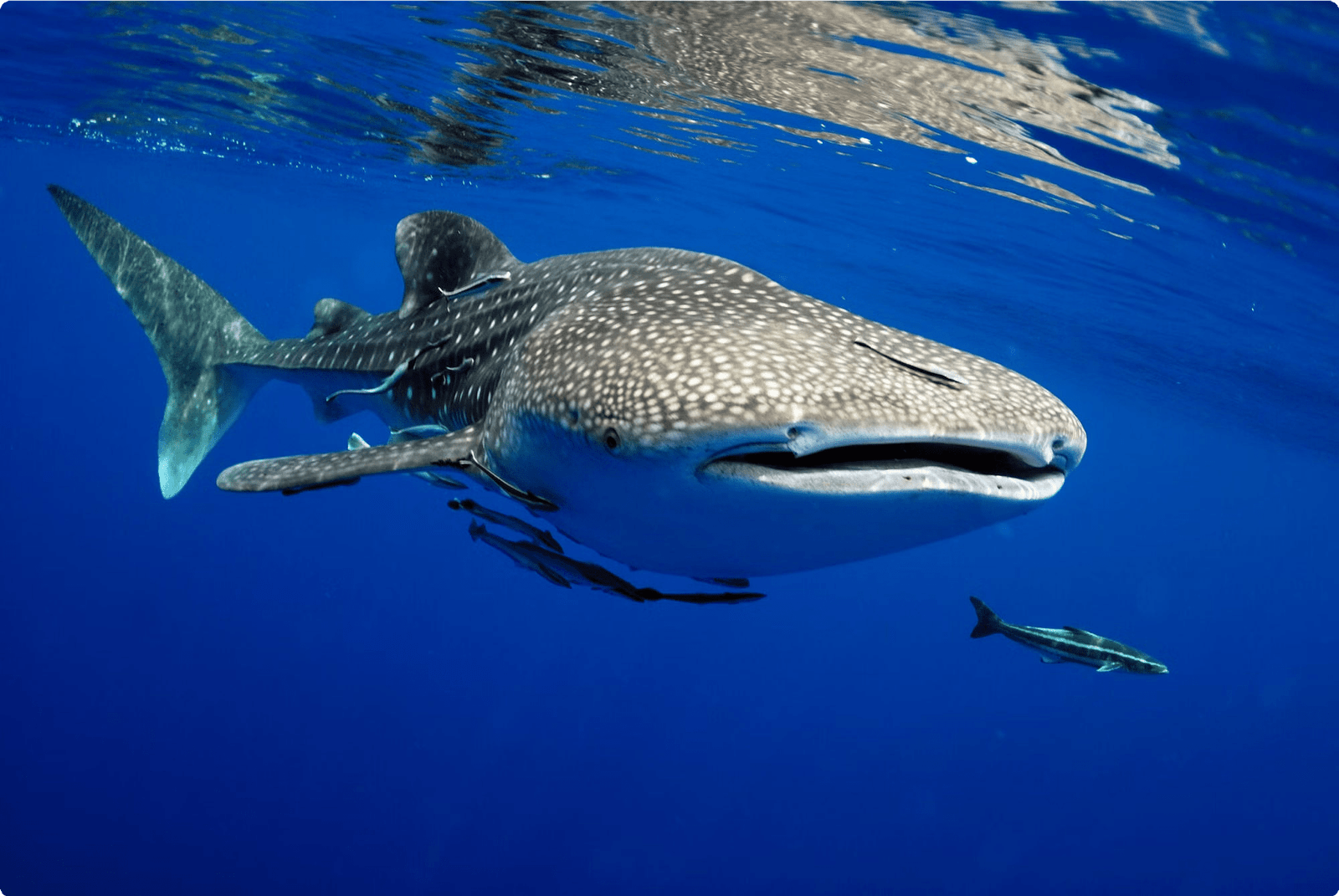
National Parks in Djibouti
Day Forest
Located in the Goda Mountains, Day Forest is a breathtaking national park known for its diverse flora and fauna. The park is home to unique plant species, including the famed “sacred trees” of the Afar people, which are often visited for their cultural and spiritual significance.

Goubet al-Kharab
Goubet al-Kharab, also known as the Devil’s Cauldron, is a spectacular national park featuring an otherworldly landscape of bubbling hot springs, salt flats, and volcanic formations. The park’s rugged beauty and geothermal activity make it a must-visit for adventure seekers and nature enthusiasts.
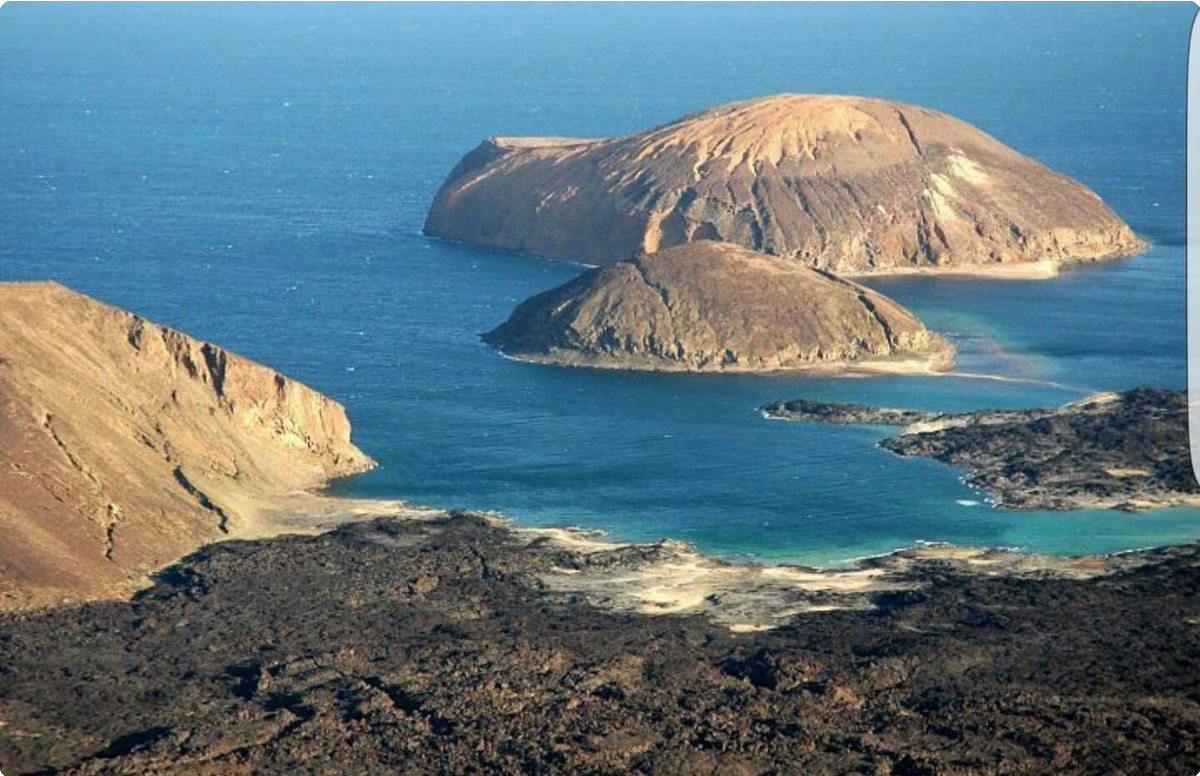
Forêt du Day
The Forêt du Day National Park is an ecological gem, showcasing the diverse ecosystems of Djibouti. With its dry forests, rocky outcrops, and unique wildlife, including Djibouti francolin and Somali ostrich, this park offers an opportunity for visitors to immerse themselves in the natural wonders of the region.

Beaches in Djibouti
The Red Sea Coastline
The beaches along Djibouti’s Red Sea coastline offer a stunning blend of white sand, clear blue waters, and beautiful coral reefs. The tranquil shores provide an ideal setting for sunbathing, snorkeling, and diving, making it a must-visit destination for beach lovers and water sports enthusiasts.

Ghoubet Beach
Ghoubet Beach, located near the village of Ghoubet, is known for its unique and dramatic landscape. The beach is framed by rugged cliffs and crystal-clear waters, creating a picturesque and secluded environment for visitors to relax and unwind in the midst of breathtaking natural beauty.

Tadjoura Beach
Tadjoura Beach boasts palm-fringed shores, warm turquoise waters, and a laid-back atmosphere, offering visitors a serene and tropical escape. The beach is also a popular spot for water activities, such as swimming, kayaking, and beach volleyball, making it an ideal destination for a fun-filled day by the ocean.
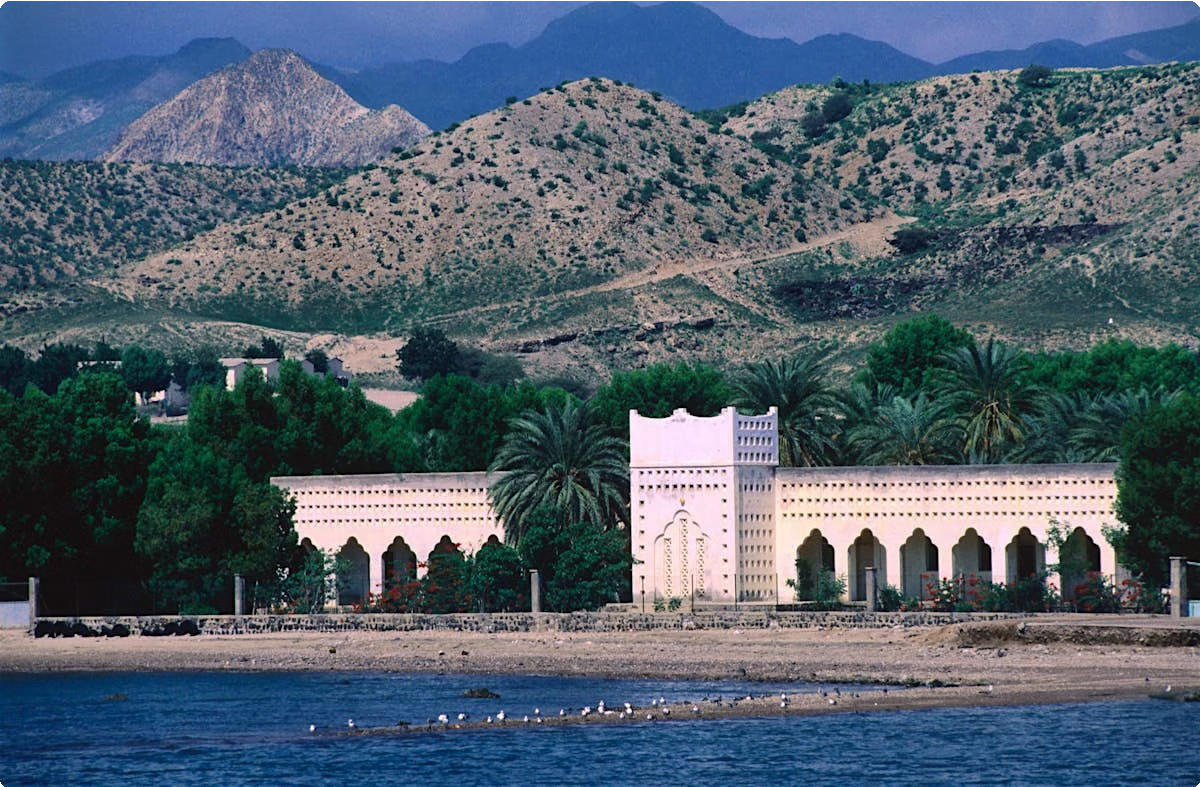
Mountains in Djibouti
Goda Mountains
The Goda Mountains, located in the northern part of Djibouti, are a rugged and picturesque range with stunning rock formations and cliffs. The mountains are known for their unique geological features, including ancient lava flows and volcanic craters, making them an ideal destination for hiking and rock climbing enthusiasts.

Aurître Mountains
The Aurître Mountains, also known as the Red Sea Mountains, offer breathtaking landscapes and panoramic views of the surrounding area. The mountain range is characterized by its distinct red and orange hues, and it is home to diverse flora and fauna, including rare bird species and indigenous plants.

Mabla Mountains
The Mabla Mountains, situated in the southern region of Djibouti, boast gentle slopes and verdant valleys, providing a peaceful and serene environment for nature lovers and outdoor enthusiasts. The mountains are dotted with clear streams and cascading waterfalls, creating a tranquil and picturesque setting.

Lakes in Djibouti
Lake Abbe
Lake Abbe is a saltwater lake located in the Afar region of Djibouti. It is known for its otherworldly landscapes, with stunning limestone chimneys and unique flora and fauna such as flamingos and camels in the surrounding area. The lake’s water changes color depending on the time of day, creating picturesque scenery that attracts photographers and nature enthusiasts from around the world.
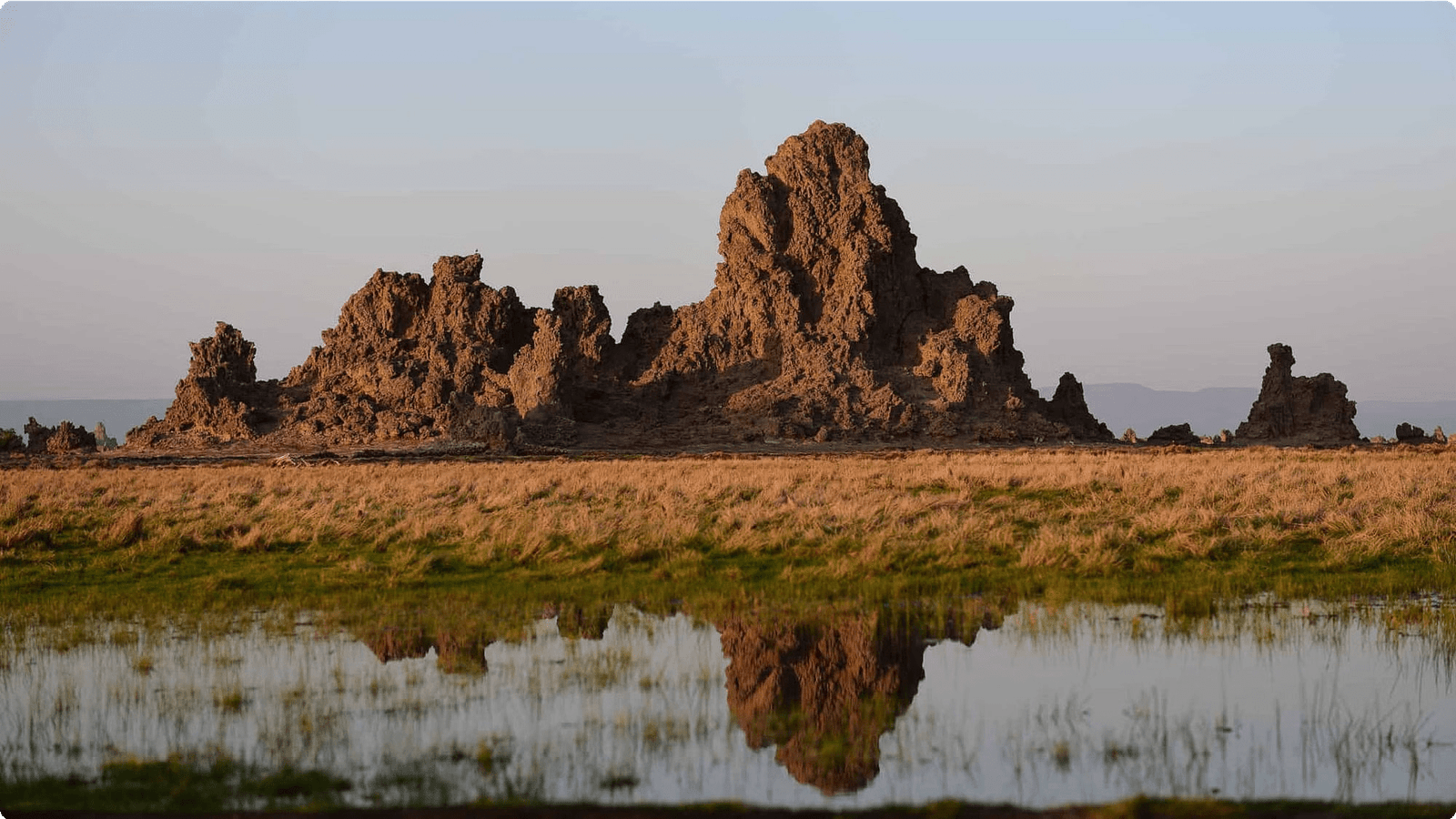
Lake Assal
Lake Assal is a crater lake in the central-western part of Djibouti and holds the title of the lowest point in Africa. The lake’s high salinity makes it a natural wonder, with its crystalline shorelines and turquoise waters creating a mesmerizing sight against the red desert backdrop. It is also a prime location for salt harvesting, a traditional livelihood that continues to thrive in the region.
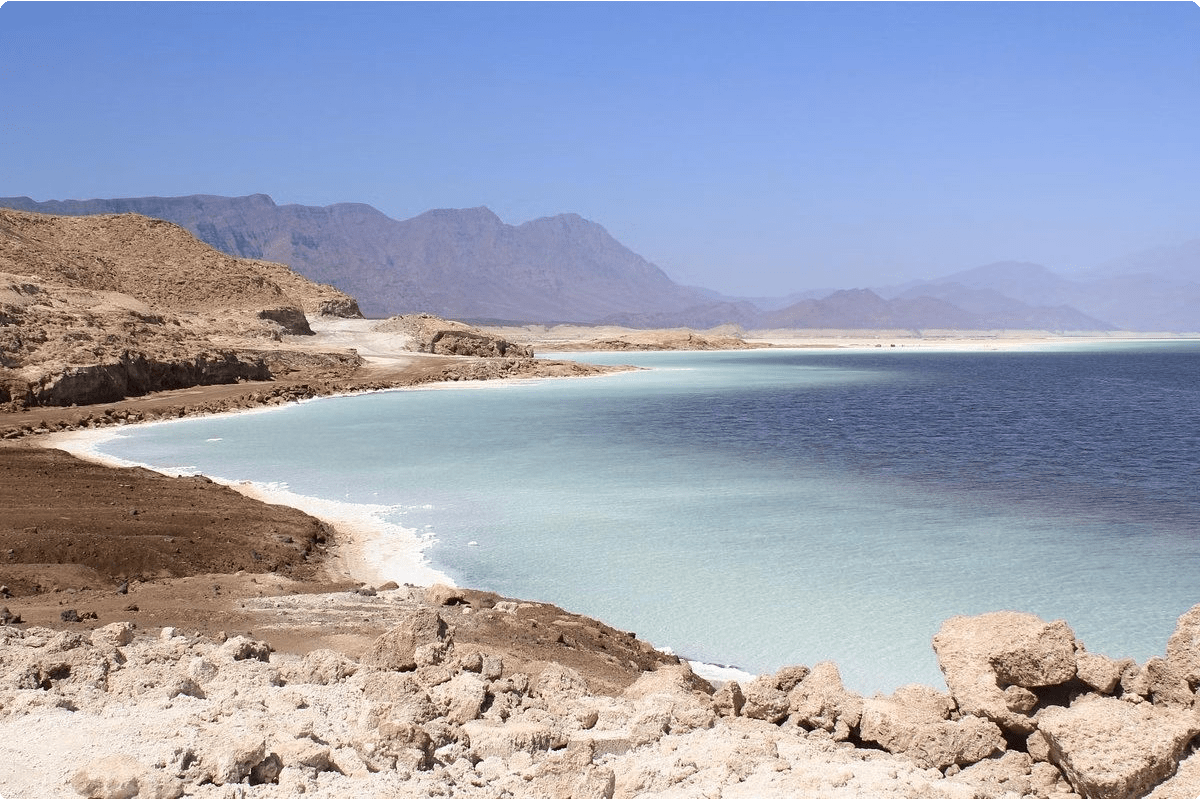
Lake Goubet
Situated near the Gulf of Tadjoura, Lake Goubet is a hot and brackish inlet that connects to the Red Sea. The lake’s unique environment is home to diverse marine life, creating a vibrant ecosystem that supports fishing and local biodiversity efforts. Additionally, the area’s rugged cliffs and volcanic landscapes make it a popular destination for eco-tourism and wildlife observation.

Museums in Djibouti
National Museum of Djibouti
The National Museum of Djibouti is a treasure trove of historical artifacts and cultural exhibits. It houses a rich collection of ancient artifacts, traditional clothing, and archaeological finds that provide insight into the history and heritage of Djibouti. Visitors can explore the diverse cultural heritage of the country through the museum’s well-curated displays.
Modern Art Gallery
The Modern Art Gallery in Djibouti showcases a vibrant collection of contemporary art, including paintings, sculptures, and installations by local and international artists. The gallery provides a platform for emerging talent and offers unique perspectives on the cultural and artistic landscape of Djibouti.
Palace-kitchen Museum
The Palace-kitchen Museum is a hidden gem that offers a glimpse into the culinary history of Djibouti. It features a fascinating collection of traditional kitchen utensils, cookware, and culinary artifacts, providing an immersive experience of the country’s culinary traditions and historical gastronomy.
Festivals in Djibouti
Afar Tribe Festival
The Afar Tribe Festival is a celebration of the rich cultural heritage of the Afar people with traditional dance, music, and colorful costumes. It is a lively and vibrant event that showcases the unique traditions of the Afar tribe.
Djibouti Day Festival
The Djibouti Day Festival is held annually to commemorate the country’s independence. It features parades, live performances, and a variety of cultural activities that bring people together to celebrate the nation’s history and achievements.
International Food Festival
The International Food Festival in Djibouti is a gastronomic extravaganza, showcasing a diverse range of culinary delights from both local and international cuisines. It’s a celebration of flavors, aromas, and culinary traditions.
Sports in Djibouti
Football (Soccer)
Football, known as soccer in the United States, is the most popular sport in Djibouti. It is played at both amateur and professional levels, with passionate fans rooting for local and international teams. The sport unites communities and promotes camaraderie among players and fans alike.
Basketball
Basketball has been gaining popularity in Djibouti, especially among the youth. The country has its own basketball federation and hosts local tournaments, providing a platform for aspiring athletes to showcase their talent and passion for the sport.
Athletics (Running)
Long-distance running and track events are prominent in Djibouti. The country has produced world-class athletes who have competed in international competitions, earning recognition and respect for their remarkable performances.
Volleyball
Volleyball is a popular recreational and competitive sport in Djibouti. It is often played on the beaches, adding a scenic backdrop to the fast-paced matches and friendly competitions.
Transportation in Djibouti
Private Cars
Private cars are a popular mode of transportation in Djibouti, especially for residents and visitors who prefer flexibility and convenience. While the road infrastructure is continuously improving, it’s important to be mindful of local driving practices and road conditions.
Public Buses
Public buses provide an affordable and reliable option for commuting within Djibouti City and its surrounding areas. They are often crowded but offer an opportunity to experience the local way of life and interact with fellow passengers.
Taxis
Taxis are readily available in Djibouti, offering a convenient way to navigate the city. Negotiating fares is common practice, so it’s advisable to confirm the cost before starting the journey.
Accommodation Options in Djibouti
Luxury Hotels
Djibouti offers luxurious accommodations in the form of high-end hotels with exceptional amenities, elegant interiors, and stunning views of the surrounding landscapes. Guests can enjoy premium services, fine dining experiences, and world-class hospitality.
Beach Resorts
For a tranquil escape, beach resorts in Djibouti provide the perfect retreat with private beaches, water sports, and serene surroundings. Visitors can indulge in relaxation and enjoy the pristine coastline.
Boutique Hotels
Djibouti also offers charming boutique hotels, combining personalized service with unique decor and intimate settings. These hotels provide a cozy and welcoming atmosphere for discerning travelers.
Wildlife Lodges
For nature enthusiasts, there are wildlife lodges that offer an immersive experience in the natural habitats of Djibouti. These lodges provide an opportunity to stay close to the wilderness and observe the local flora and fauna.